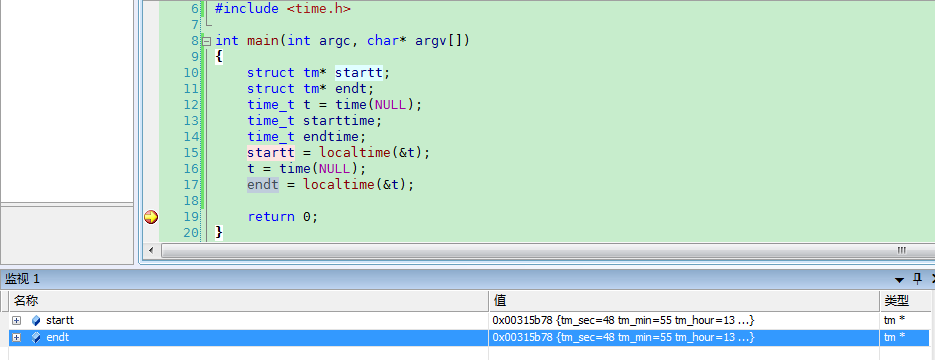C语言中有关mktime函数的位置问题
struct tm* startt;
struct tm* endt;
time_t t = time(NULL);
time_t starttime;
time_t endtime;
startt = localtime(&t);
endt = localtime(&t);
startt->tm_hour = 0;
startt->tm_min = 0;
startt->tm_sec = 0;
starttime = mktime(startt);
endt->tm_hour = 23;
endt->tm_min = 59;
endt->tm_sec = 59;
endtime = mktime(endt);
为什么如上这样写可以运行,而如下这样写就错了呢?
struct tm* startt;
struct tm* endt;
time_t t = time(NULL);
time_t starttime;
time_t endtime;
billing pbilling;
int nIndex = 0;
startt = localtime(&t);
endt = localtime(&t);
startt->tm_hour = 0;
startt->tm_min = 0;
startt->tm_sec = 0;
endt->tm_hour = 23;
endt->tm_min = 59;
endt->tm_sec = 59;
starttime = mktime(startt);
endtime = mktime(endt);
 发帖
发帖 与我相关
与我相关 我的任务
我的任务 分享
分享